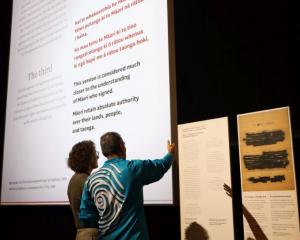New Zealand has recorded the sharpest increase in annual road deaths among a group of 28 countries in an international study.
The number of fatalities increased 16.1 per cent last year compared with 2013 - the worst among eight countries whose records have deteriorated in the International Road Traffic and Accident Database (Irtad).
The figure reverses an improvement by around the same level the year before, and New Zealand is around the middle of the pack in terms of road deaths per 100,000 head of population.
Road death comparison figures were revealed at the OECD's International Transport Forum (ITF) in Leipzig, eastern Germany tonight.
Sweden has the lowest rate of fatalities at 2.7 per 100,000. New Zealand has 5.7 and Argentina is the worst of those in the study, with 12.9 road deaths per 100,000 of population in 2013.
New Zealand took over the presidency of the ITF today and Transport Minister Simon Bridges said the rise was disappointing.
"What we know is those numbers aren't just numbers, they represent lives," he said.
The 2014 data showed 15 countries in the study had a fall in road deaths, five remained around the same and eight had an increase. The steep rise in New Zealand followed a 17 per cent fall in fatalities between 2013 and the following year. And New Zealand is heading for a higher toll this year with the number of deaths tonight at 134 compared with 123 at the same time last year.
An ITF spokesman said New Zealand's relatively small size made percentage movements more dramatic.
"Even big percentage swings often reflect a small absolute number of people - while even small percentage changes for big countries often involve a much larger absolute number of people," he said.
"New Zealand saw a strong reduction in road fatalities in 2013, so 2014 should be seen in context of beyond just a year-on-year change. The overall trend is positive, towards fewer fatalities."
Mr Bridges said over the 2000s there had been a 45 per cent decline of fatalities compared to the rise in population.
He said he and associate minister Craig Foss had made reducing the road toll one of the three main transport priorities.
The driving age had been increased, tests made harder, drink drive limits lowered and the rules changed around children's car seats.
"We've got to keep pressing on this otherwise you can go backwards."
The figures are still provisional and one country, Malaysia - which had the worst death rate in the figures released last year - is not in the survey.
Road deaths in Australia declined in the study, from 1187 to 1156. Of the countries studied, the United States has the highest number with more than 32,000 deaths (according to latest figures in 2013) and a fatality rate of 10.9 per 100,000 of population.
The international trend shows road deaths falling by 42 per cent among countries surveyed since 2000 by Irtad, the permanent working group on road safety at the ITF.
The economic downturn that started hitting most countries since 2008 has had a substantial impact in the reduction of fatalities. Modelling work by the ITF shows that it contributed to two-thirds of the reduction between 2008 and 2010.
The Irtad countries with lowest road mortality rates are in Europe with Britain as well as Sweden recording fewer than three fatalities per 100,000 inhabitants in 2013. In some member countries, however, this rate is still in excess of 10.
"Although substantial overall fatality reductions have been achieved since the year 2000, the pace of improvement for vulnerable road users is lower than for car occupants."
While fatalities among car occupants were reduced by 54 per cent between 2000 and 2013, decreases were only 36 per cent for pedestrians, 35 per cent for cyclists and 22 per cent for motorcyclists.
As a result, in many countries, road safety priorities have recently shifted from motorised rural traffic to vulnerable road users in urban areas.
"The encouraging results achieved in Irtad countries should not hide the fact that every year 1.3 million people are killed and tens of millions are injured, Ninety per cent of them in low and middle income countries."
Mr Bridges is due to formally open the forum overnight, an intergovernmental organisation with 54 member countries.
The ITF acts as think tank for transport policy and organises the annual summit of transport ministers.
* Grant Bradley is in Leipzig courtesy of the ITF
- By Grant Bradley of the New Zealand Herald in Leipzig











